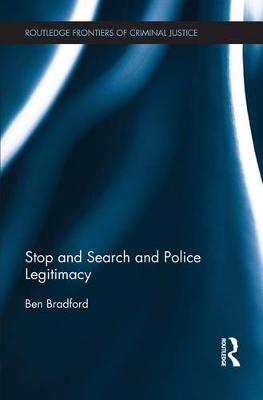Routledge Frontiers of Criminal Justice
1 total work
‘Stop and search’ is a form of police-citizen interaction that is confrontational, often stressful for those involved, and potentially damaging to the relationship between police and public. The extent to which police officers use their power to stop and perhaps search members of the public is intimately linked not only to the present-day context of policing but also to longer term patterns in the aims of policing, the ends used to achieve them, and ultimately to the ideology of policing in England and Wales.
Stop and Search and Police Legitimacy draws upon both police-administrative and survey-based data to examine what has for many years been one of the most highly charged and contested aspects of police practice. Taking a decidedly quantitative, empirical, approach, this book examines the patterning of police stops over social and geographic space, the problem of ethnic disproportionality, and the evidence concerning how people experience and react to being stopped by police – particularly in relation to issues of fairness, legitimacy, cooperation and compliance. A further important concern is the extent to which this form of police practice shapes and re-shapes the identities of those affected by it.
This ground-breaking study is a comprehensive resource for students and scholars in the fields of criminology, sociology, social policy, ethnic and racial studies and human rights. It will also be of special interest to police leaders and policy-makers.
